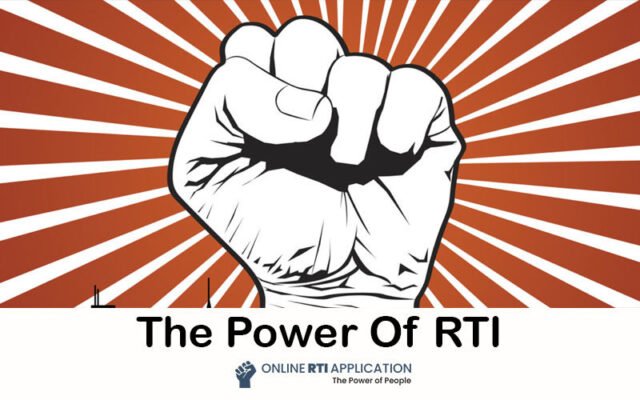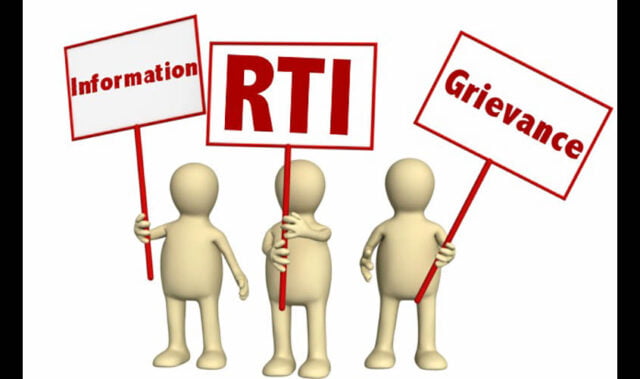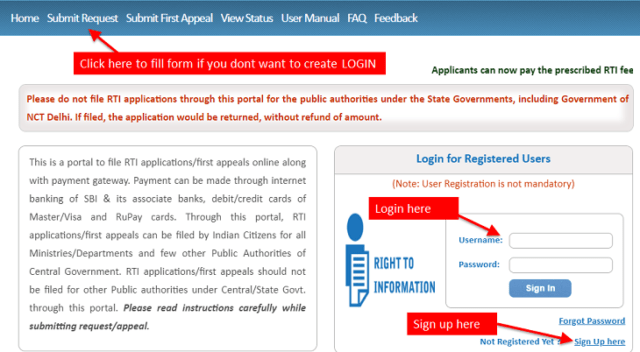Life skills is a term used to describe a set of basic skills acquired through learning and/or direct life experience that enable individuals and groups to effectively handle issues and problems commonly encountered in daily life.
What Is The RTI?
RTI refers to the Right To Information.
In 2005, the Right to Information Act (RTI) was passed in the parliament of India. It permits the citizens of India irrespective of his/her gender, caste, and creed, to have a right to question the performing government about any of its functionalities, services, and projects.
It is one of the most important acts that guarantee the rights of the people in India and enable transparency in government operations.
However, the state of Jammu of Kashmir has its own RTI act with some modifications.
RTI can be filed online as well as offline. Although you can file an RTI only for the Central Government Department and officials such as PMO, the President, etc. You cannot file RTI applications online for the public authorities under the State Governments.

What Are Some Pointers To Keep In Mind Before Applying?
Questions should be framed properly or else, applications do not receive adequate information.
If you are not confident in seeking information in English, you can seek information in Hindi from the Central Government authorities. In the case of State Government offices or local authorities, information can also be sought in the respective local languages.
You must send the application to the appropriate authority. Otherwise, you may not receive appropriate information.
If the information which is being sought involves more than one department, separate RTI applications are required to be sent to the appropriate departments.
If you are not satisfied with the reply, you must approach the appellate authority. The RTI reply contains the name and address of the appellate authority.
Although there is no such rule to limit the number of questions but to get specific information, the number of questions must be within a reasonable limit(preferably less than 10 questions).
The applicant must not forget to indicate their name along with the correct postal address in the RTI application.

How Can One Apply Online?
The first step will be making sure to which department you want to file the RTI.
Once decided go to https://rtionline.gov.in/ and register yourself. The site has some useful guidelines provided which must be read beforehand.
The application has to be within the limit of 3000 words. There is also a section for uploading supporting documents. In the end, payment of a minimal fee of RS10 is to be made and then wait out the processing time.
You can either create an account or directly Submit a Request. To proceed directly you can click on the “Submit Request” button as shown.
It will lead to a page with “Terms and Conditions”. It is advised that you read the same before filing an RTI. Click on the “agree” checkbox and then the “Submit” button.

Then you choose the “Ministry” that you want to apply for RTI in and fill in your details.
Fill the field about being below or above the Poverty Line. People above Below Poverty Line have to pay a fee of RS 10. Next, write the application in the field “Text for RTI request”, if your application is less than 3000 words.
You can write in a word document for longer requests and attach it to the Supporting Document upload button directly below “Text Box”.
After the payment is completed save the “Registration Number” generated for further Reference. The reply will be notified on the given email and SMS updates will also be sent.
Also Read: Life Skills They Don’t Teach In School: How To Pay Utility, Credit Card Bills
How To File An RTI Offline?
Identify the government and the authority from which you seek the information. Then address an application on a white sheet of paper to the “Public Information Officer” of such authority or department, followed by the name and address of the department.
The subject line of the application mention “Seeking Information Under the RTI Act, 2005.”
You must enlist all such points in the form of questions upon which you wish to receive information. Include details if you need specific information such as dates and years.
Once the application is complete, do not forget to mention the date of the application and the details of the postal order of Rupees 10 which you need to attach along with the application.
The people below the poverty line, are not required to attach the postal order or make the fee payment, but they must attach a copy of the BPL Certificate.
Then sign the application form with your full name and address along with the date and send it through a registered post to the office of the concerned authority. If a reply is not received within 30 days, an appeal can be filed with the Appellate Authority.
Image Credit: Google Images
Sources: RTI, IndiaToday, OnlineRTI
Find The Blogger: @saba_kaila0801
This post is tagged under: RTI, Life Skills, Life skills they don’t teach in school, necessary, Right To Information, Article in Constitution, Constitution of India, Government held responsibly, Know more, Get knowledge, awareness, Ministry, Website, online, offline, post office, application, applicant, subject, matter, letter, fees, below the poverty line, above the poverty line, payment, Government of India, Centre, state, local government, Hindi, English, Local languages,
Other Recommendations:
Life Skills They Don’t Teach In School: How To Follow Your Passion But Also Worry About Salary































